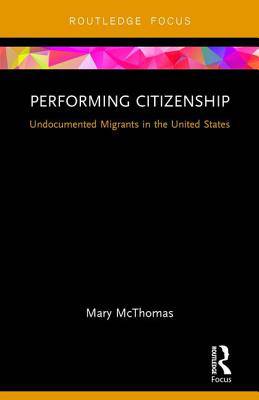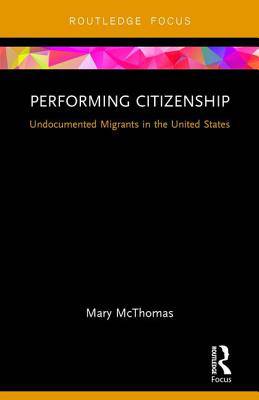
- Retrait gratuit dans votre magasin Club
- 7.000.000 titres dans notre catalogue
- Payer en toute sécurité
- Toujours un magasin près de chez vous
- Retrait gratuit dans votre magasin Club
- 7.000.0000 titres dans notre catalogue
- Payer en toute sécurité
- Toujours un magasin près de chez vous
Performing Citizenship
Undocumented Migrants in the United States
Mary McThomasDescription
Undocumented migrants in the United States raise compelling questions about political legitimacy, obligation, and citizenship. If they are truly members of their communities, should they have a voice in the laws and policies that impact their lives? Should their interests be considered, especially in light of exploitation by employers, the possibility of detention and the threat of deportation? This book argues that we do indeed owe certain moral and political obligations to those individuals who have been living and contributing to their communities, regardless of whether they initially arrived without documents. McThomas' argument is based on flipping the way we think about political obligation and state-granted citizenship. Instead of the conventional understanding that the conferral of rights by the state obligates citizens to perform certain duties, she argues that the performance of civic duties and obligations - "performing citizenship" - should trigger corresponding rights and protections. The book combines theory and practice to make this argument, analyzing state-level legislative debates about extending driving privileges and in-state tuition rates to undocumented residents. Consistent with the book's main argument, we see contested notions of what constitutes citizenship in these debates and a growing acknowledgment that those who perform citizenship deserve certain rights and privileges.
Spécifications
Parties prenantes
- Auteur(s) :
- Editeur:
Contenu
- Nombre de pages :
- 110
- Langue:
- Anglais
Caractéristiques
- EAN:
- 9781138684096
- Date de parution :
- 18-05-16
- Format:
- Livre relié
- Format numérique:
- Genaaid
- Dimensions :
- 140 mm x 216 mm
- Poids :
- 290 g

Les avis
Nous publions uniquement les avis qui respectent les conditions requises. Consultez nos conditions pour les avis.






